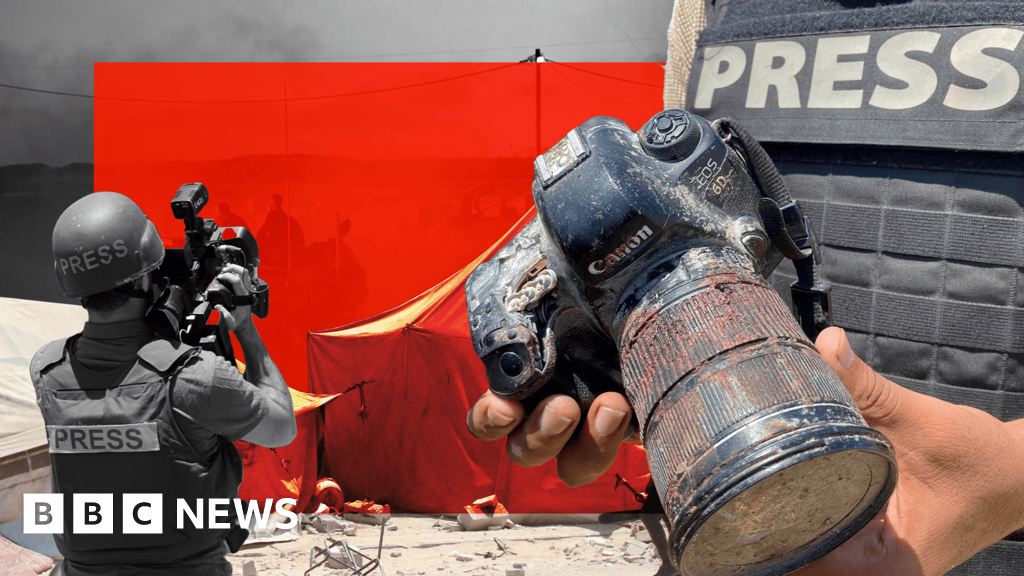'Exhausted, Hungry, and Scared': The Perils of Journalists in Gaza
In the midst of a relentless conflict, Palestinian journalists find themselves living and working in makeshift conditions, often in tents near hospitals to access essential services like electricity and mobile connectivity.
I never imagined that one day I would be living and working in a tent, deprived of the most basic human necessities - even water and a bathroom, journalist Abdullah Miqdad told the BBC.
With power cuts affecting all of Gaza, hospitals have become a refuge for journalists as their generators provide the electricity necessary to charge devices. Unfortunately, these spaces are not safe havens, with Israeli airstrikes targeting such locations.
On a recent day, five journalists became victims in an Israeli strike on Nasser hospital in Khan Younis, underlining the dangers that have escalated in the region.
Since the onset of this ongoing war, more than 190 journalists, including many Palestinians, have lost their lives while reporting.
Local reporter Ahed Farwana shared the pervasive fear among his colleagues: We feel targeted by Israeli forces, which leaves us in constant fear for our safety and that of our families. Meanwhile, the hunger crisis deepens; with reports indicating that over 500,000 people in Gaza face starvation due to the conflict.
This has also led to younger individuals stepping into the journalism field, despite the unpredictable nature of their contracts and the lack of protective resources.
Ghada al-Kurd, a correspondent with Der Spiegel, emphasizes the toll this situation takes on journalists emotionally: During this war, we have lost the ability to express our emotions. We are in a constant state of shock. Her determination to continue reporting amidst personal grief highlights both the strength and the struggles faced by journalists in Gaza.



















